Briefs/ Report on Asian & South Asian Americans/ Looking Back on Immigration Laws/ Book Matters.

WHO, WHAT, WHERE, WHEN, & WHY
Nikki Haley, a former UN envoy and South Carolina governor, has joined the Hudson Institute, a conservative think tank in Washington, D.C. As the Walter P. Stern Chair, she will be involved in shaping Hudson’s foreign and domestic policy initiatives. Haley won Hudson’s Global Leadership Award in 2018. In the 2024 Republican primaries, Haley got 97 delegates before she dropped out. Donald Trump, the winner, got 2142 delegates.

Sunny Bhathela launched VIANI, a watch company that produces wristwatches with Hindi numerals. Bhathela, whose parents are Indian immigrants, lives in North Carolina. He studied biochemistry and genetics, but he was drawn to this initiative because he wanted to pay homage to his heritage. Priced $300-350, his Swiss-made watches come in different styles and are powered by sunlight and fluorescent light.
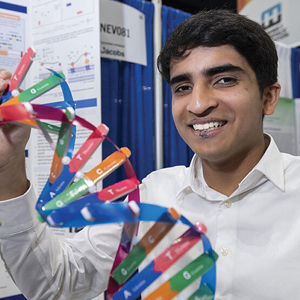
Krish Pai, along with Michelle Wei, won the Regeneron Young Scientist Award at the 2024 International Science and Engineering Fair (ISEF). Both Californians are 17 years old, and they each won $50,000. Grace Sun, 16, won first place and received $75,000. Microby, the software Pai developed, scans databases of microorganisms to determine which ones can be changed genetically to biodegrade plastics. He identified two.
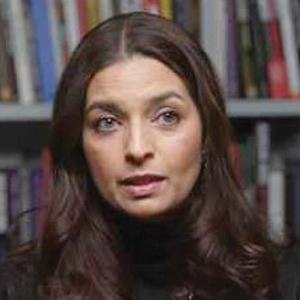
Jhumpa Lahiri, a professor at Barnard College in New York, is one of ten authors (from the literature section) who were elected this year to the American Academy of Arts & Sciences. Amitav Ghosh and Hanif Kureishi are on the list as well. Lahiri, who has written books in English, now mostly writes in Italian. She’s also a translator. The paperback edition of her Roman Stories (translated into English) is out this month.
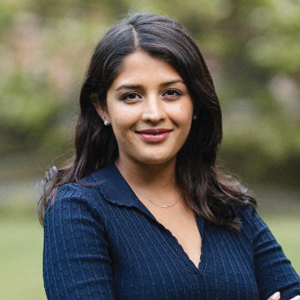
Kritika Singh, who seeks to bridge gaps in global health through innovative
technology, is one of seven Indian-origin winners of the 2024 Knight-Hennessy scholarship, which pays for up to three years of graduate studies at Stanford. Singh, who studied bioengineering, is doing an MD. Other Indian-origin winners: Wasan Kumar, Aneesh Pappu, Isha Sanghvi, Rahul Penumaka, Krishna Pathak, and Ank Agarwal.
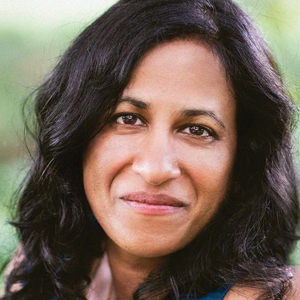
V. V. Ganeshananthan, a novelist of Sri Lankan descent, won the second Carol Shields Prize for Brotherless Night, which features a young Tamil woman in a story that’s set in the early years of the island’s civil war. Worth $150,000, this prize celebrates excellence in fiction by women and nonbinary writers in Canada and the U.S. The inaugural Carol Shields Prize for Fiction went to Fatimah Asghar, who’s also of South Asian descent.
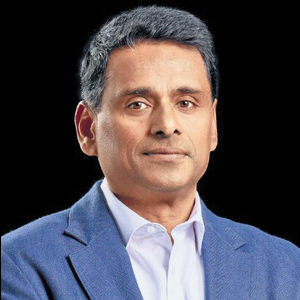
Srini Pallia takes over as the CEO and managing director of Wipro, the technology and consulting services company based in Bengaluru. Pallia will remain in New Jersey, where he’s been the CEO for Americas 1, Wipro’s largest and fastest-growing strategic market. Pallia, who’s been with Wipro since 1992, earned a master’s degree in management studies from IISc in Bengaluru. Wipro has over 240,000 employees.
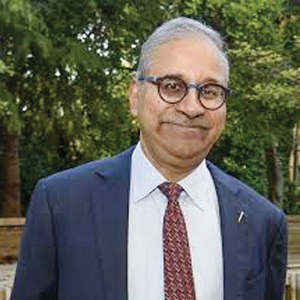
Ram Shriram is one of two winners of Stanford’s Gold Spike Award, the university’s highest volunteer service award. The other recipient is Angela Nomellini. Shriram is not an alum but he is the father of two Stanford graduates. Praised for his contributions to the university, especially in bioengineering and AI, he has served on several boards. Shriram, who founded Sherpalo Ventures, won an Ellis Island Medal of Honor last year.
>> >> >> >>
REPORT ON ASIAN & SOUTH ASIAN AMERICANS
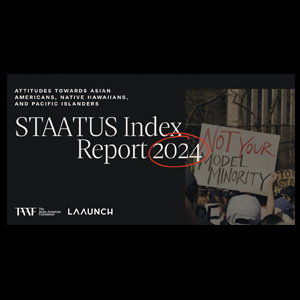 Only a third of Americans feel that hate towards Asian Americans has risen over the last year. But a larger proportion of Asian Americans (61%) think that hate has increased towards them, according to The Asian American Foundation (TAAF). There are other findings from TAAF’s fourth STAATUS Index, which stands for Social Tracking of Asian Americans in the United States. For instance, due to discrimination and lack of representation, only 38% of Asian Americans fully agree that they belong in the U.S., with a much lower share—18%—agreeing that they’re completely accepted here for their racial identity. Among major groups, Asian Americans are the least likely to feel strongly that they belong in this country. It’s 44% for Black Americans, 51% for Hispanic Americans, and 70% for White Americans.
Only a third of Americans feel that hate towards Asian Americans has risen over the last year. But a larger proportion of Asian Americans (61%) think that hate has increased towards them, according to The Asian American Foundation (TAAF). There are other findings from TAAF’s fourth STAATUS Index, which stands for Social Tracking of Asian Americans in the United States. For instance, due to discrimination and lack of representation, only 38% of Asian Americans fully agree that they belong in the U.S., with a much lower share—18%—agreeing that they’re completely accepted here for their racial identity. Among major groups, Asian Americans are the least likely to feel strongly that they belong in this country. It’s 44% for Black Americans, 51% for Hispanic Americans, and 70% for White Americans.
There are findings about subgroups as well. Question: Have you felt unsafe or uncomfortable in the following spaces because of your race, ethnicity, or religion? Answer: On social media, for Asian Americans overall, it is 18%. For South Asian Americans, it is 17%—and for Southeast Asian Americans, it is 22%. Other responses for South Asian Americans on feeling unsafe are 16% (neighborhood), 14% (workplace), and school (12%). Also notable was the reaction to this statement: “Personally, I feel that I am accepted in the U.S. for my identity.” Only 16% of South Asian Americans completely agreed (somewhat agreed: 42%). Only 2% of Americans could name Kamala Harris as a prominent Asian American. But 70% believe that Asian Americans have made a positive contribution.
/|\ /| \ /|\ /| \
LOOKING BACK ON IMMIGRATION LAWS
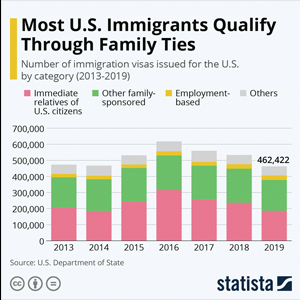
A hundred years ago, Congress passed the Indian Citizenship Act of 1924. However, this had nothing to do with Asian Indians. This long-due act stipulated that Native Americans (who hadn’t been covered by the Fourteenth Amendment) were automatically U.S. citizens by birth. While this legislation was commendable, the Immigration Act of 1924 (also known as the Johnson-Reed Act) drew condemnation. Passed by an overwhelming majority in Congress, this restrictive law not only imposed quotas but also, for all practical purposes, stopped legal migration from Asia. The quota—2% of each nationality’s population residing in the U.S. as of the 1890 census—overwhelmingly favored immigrants from western and northern Europe. For the first time, immigrant visas became mandatory. A century ago in the U.S., the population of nonwhites from other countries was negligible. So why was the legislation pushed through? Mainly because the U.S. wanted to stem the flood of eastern and southern European migrants. Despite efforts to overturn the restrictions, the law remained in effect for four decades. Individual exceptions and pre-1924 migration allowed 2,076 Indians to immigrate in the 1920s, but the number dropped to 554 in the 1930s, according to the 2010 Yearbook of Immigration Statistics.
The Immigration and Naturalization Act of 1965 abolished quotas, favored skilled immigrants, and gave preference to family reunification. Lawmakers thought these changes would facilitate more immigration from Europe. Ironically, Asians benefitted the most. Indian immigration grew from 18,638 in the 1960s to
147,997 in the 1970s. In the 1950s, by contrast, only 1,850 Indians immigrated to the U.S. In the first decade of the 21st century (2000-2009), that number jumped to 590,464.
& & & & & & & & & &
BOOK MATTERS
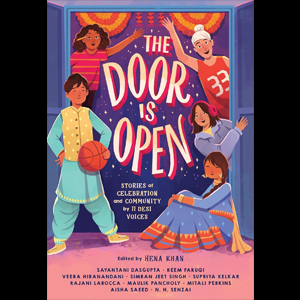
The Door Is Open: Stories of Celebration and Community by 11 Desi Voices (Little, Brown). This middle-grade book, edited by Hena Khan and featuring leading contributors, will make an excellent gift for young readers (8-12 years) of South Asian descent. They will learn about friendships, tackling bigotry, multiculturalism, dealing with ignorance, etc. But these are short stories, not essays or lectures, and readers will encounter relatable characters, revel in engaging plots, and enjoy the writing and humor. Along with Hena Khan, the authors included here are Veera Hiranandani, Maulik Pancholy, Aisha Saeed, Mitali Perkins, Reen Faruqi, Simran Jeet Singh, Supriya Kelkar, Rajani LaRocca, N.H. Senzai, and Sayantani DasGupta. The stories are set in Maple Grove, a fictional town in New Jersey, where these kids interact and celebrate their heritage at a community center. This anthology is for “everyone looking to find their place in the world,” as the epigraph notes. According to School Library Journal, the collection “moves beyond the reality of diversity into the necessity of it.”
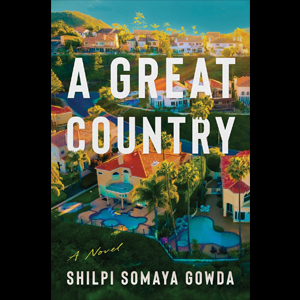
A Great Country (Mariner Books), by Shilpi Somaya Gowda. The Shahs, having moved to the U.S. from India two decades ago, are living the American Dream in California, where their gated community in Pacific Hills is their version of paradise. But, of course, any paradise on earth is temporary. Their 12-year-old son, Ajay, who may have undiagnosed developmental issues, is arrested near the airport and beaten up as a suspected terrorist. His crime? He was flying a homemade drone. The Shahs also have two daughters—the socially active Deepa, who’s alienated from the affluent, segregated lifestyle of her parents, and the younger Maya, who seems to thrive in the enclave. Class, race, and culture play a role in this tale of two generations. “A bold and unapologetic read about the precariousness of one Indian-American family’s attempts to assimilate and how quickly and carelessly a model minority becomes just a minority,” notes author Vibhuti Jain.
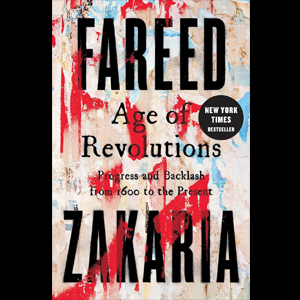
Age of Revolutions: Progress and Backlash 1600 to the Present (Norton), by Fareed Zakaria. Are we living through a revolutionary period? Yes, says Zakaria, though the dramatic change we’re seeing is not only disruptive but illiberal, standing for “regression, restriction, nostalgia, revolution in the sense of returning to the past.” While Trump may see himself as a revolutionary, Zakaria points out, he wants to take us back to the world of 1950s. On the other hand, we have “liberalism, meaning progress, growth, disruption, revolution in the sense of radical advance . . .” To understand these competing trends, Zakaria takes readers through 400 years of history, touching on what he calls the First Liberal Revolution (the Netherlands), the Glorious Revolution (England), the Failed Revolution (France), and the Industrial Revolution, which he dubs the Mother of All Revolutions. In the second section, he sheds light on economics, technology, identity, and geopolitics. Besides being a journalist and author (this is his fifth book), Zakaria is the host of GPS on CNN.

Bird Milk & Mosquito Bones: A Memoir (Knopf), by Priyanka Mattoo. In her debut essay collection, Mattoo takes readers across continents and introduces them to an interestingly varied life. The early period was tragic—she was just nine when her family had to abandon violence-torn Kashmir. Her father’s profession as a physician provided a comfortable life in Saudi Arabia, Britain, and the U.S., although the sense of being adrift or homeless never left her. She traces that four-decade journey encompassing 32 different addresses, while also providing glimpses of her ties with family members, friends, and the man who became her husband. Having abandoned an early attempt to find a Kashmiri husband (there weren’t many eligible bachelors in the U.S.), she met and married a Jewish author. R. O. Kwon calls her book “a remarkably vivid, moving epic of displacement and its aftermath.” Mattoo, who earned degrees in law and Italian, is also a filmmaker and a former talent agent.
Enjoyed reading Khabar magazine? Subscribe to Khabar and get a full digital copy of this Indian-American community magazine.
blog comments powered by Disqus










